International WAC/WID Mapping Project:
Research on Activity/Initiatives Worldwide Devoted to Student Writing in Disciplines
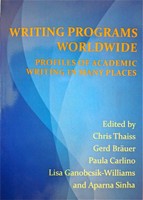
Begun in 2006, this project aims to identify, compile, analyze, and facilitate activity and interest in writing in the disciplines in higher education around the world. Team members are interested both in first-language and English-language initiatives. We are also interested in graduate-level initiatives, but we pay primary attention to undergraduate (tertiary) college-university activities focused in disciplines, as well as academic writing centers or similar services devoted to working with students and faculty/staff in and across disciplines. See website for the International and US/Canada surveys and further details.
Publication of data and analysis from the U.S. survey of the WAC/WID mapping project (Thaiss and Porter, “The State of WAC/WID in 2010”) appeared in the February 2010 issue of College Composition and Communication. A second, updated iteration of the U.S. survey was announced in September 2016 and is coordinated by Michele Zugnoni, PhD, of Northwestern University (michele.zugnoni@northwestern.edu).
A second U.S.-focused project, tentatively named Writing Sites, was designed in 2019 and is taking shape. Its broader objective is to build an interactive, searchable map with survey- and interview-based data from many U.S. universities on such programmatic features as writing in disciplines, writing centers, and services for multilingual writers. A multi-university team led by Kendon Kurzer, PhD, of U.C. Davis will conduct this project.
In regard to the international research, a book and website consisting of profiles of more than forty writing initiatives in North America, South America, Europe, Asia, Africa, and Australia/Oceania was published in 2012 by Parlor Press and the WAC Clearinghouse: Writing Programs Worldwide: Profiles of Academic Writing in Many Places. The list of 40+ profiled institutions is drawn from the 350 responses to the international survey of the Mapping Project (2006-2009). Members of the international editorial team have given presentations on this project at numerous conferences internationally, including in 2014 at the Writing Research Across Borders III Conference in Paris, France, and at the 2017 Writing Research Across Borders IV Conference in Bogotá, Colombia.
The third phase of the Int’l WAC/WID Mapping Project is a web portal under continuing construction, Writing Programs Worldwide, which enables programs/initiatives from around the world to publish multi-modal program descriptions and materials (text, photos, video, etc.) in the language or languages of their choice. Plans call for an international editorial team to supervise the new project. The coordinator of the web project is Associate Professor Aparna Sinha of California State University, Maritime, who may be reached at ASinha@csum.edu .
International Consulting in Writing Program Development and Writing Studies Research: From 2017 to 2019, I traveled to several countries as an invited consultant on writing program development and writing studies research, including Chile, Jamaica, Trinidad/Tobago, and Argentina (as a Fulbright Specialist). The pandemic interrupted this research in 2020.
***************************
Systematic Improvement of Undergraduate Education: Appropriate Writing in Large-Enrollment Classes
Through a grant from the Spencer and Teagle foundations, this interdisciplinary project designed a prototype curriculum in writing appropriate to large-enrollment, lower-division general education courses at UC Davis. The pilot project (a collaboration between the University Writing Program and Department of Sociology) ran from 2008 to 2011. Conference presentations on this work were given, 2010-14, in such venues as the Conference on College Composition and Communication (with co-researcher Brenda Rinard) and the 2011 conference of the European Association for the Teaching of Academic Writing (EATAW) in Limerick, Ireland.
One purpose of the UC Davis study was to create curriculum prototypes by which students in large-enrollment general education courses would improve their learning of key ideas and methods of thought through regular writing assignments, including a multi-stage analytical paper and multiple reading responses in an online forum.
The UC Davis study was funded by one of 13 grants given by the Spencer and Teagle foundations to US research universities under the title “Systematic Improvement of Undergraduate Education,” subtitle “Writing as an Intellectual Skill.” The overall grant project was administered by Duke University. A volume on the overall project, Changing the Conversation in Higher Education, ed. Robert Thompson, was published (Rowman and Littlefield, 2013), with a chapter on writing as an intellectual skill by Thaiss and Reynolds. Description of methods and results of the UC Davis project was included in that chapter.
*********************
Writing to Learn in STEM Disciplines
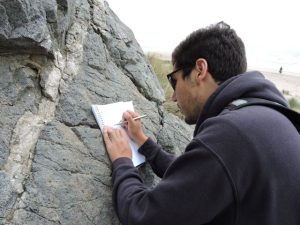
The Spencer and Teagle grants described above included several projects that emphasized “writing as an intellectual skill” in STEM disciplines. A subsequent grant from the National Science Foundation in 2010 enabled formation of a “Writing to Learn in STEM” Working Group (of which I was a member) to build a database of research studies in STEM fields on ways that writing promotes learning and critical thinking. This Bibliographic Database represents the contributions of a team of scholars and teachers in STEM research and education. The database served as a tool for
- STEM teachers seeking improved tools of student learning
- STEM researchers seeking useful methods and examples for conducting research on teaching and learning
- scholars of writing in disciplines (WID)
- WAC and WID program leaders seeking useful classroom methods and assessment techniques for colleagues in the STEM disciplines.
The grant-enabled Writing-to-Learn in STEM Working Group, made up of STEM researchers and educators, began compiling published resources and designed a full-day workshop for the November 2010 conference of the Reinvention Center in Washington, DC. The Reinvention Center (since renamed the Reinvention Collaborative)(http://reinventioncenter.colostate.edu/2014-national-conference/) is a consortium of research universities that focuses on the systematic improvement of undergraduate education. Members of the Reinvention Center consortium were invited to send STEM faculty representatives to the 2010 conference. Travel support for the 60 STEM faculty who attended was provided by their institutions, who also promised to facilitate follow-up activities on their campuses.
At the workshop, the representatives heard presentations on the history of research on writing-to-learn (WTL) pedagogy and on uses of technology in broadening the scope of writing to learn. Participants then worked on developing adaptations of WTL in their own and colleagues’ teaching, as well as imagining ways that they could use a database of published resources to
- spread best practices in teaching and
- promote systematic assessment of practice.
A further intent of the workshop was to encourage cross-campus sharing of pedagogy and systematic assessment—both means toward achieving an empirically-based “spread of effect.”
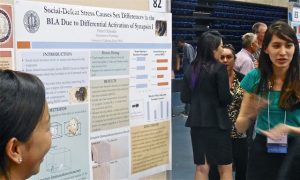
A post-workshop survey of the participants conducted by the NSF evaluator revealed 70% to 90% positive response on a range of questions related to the activities and goals.
An article theorizing and explaining the objectives and methods of the WTL in STEM project in greater detail was published in 2012:
Presentations at the AAC&U “Transforming STEM Education” Conferences, 2012-15. Thompson, Reynolds, and Thaiss gave the keynote address on this theme at the 2012 Association of American Colleges and Universities (AAC&U) “Transforming STEM Education” Conference. In 2013, with UC Davis colleagues Annaliese Franz (Chemistry) and John Yoder (Plant Sciences), I presented a panel on teaching innovations in STEM at the AAC&U STEM Conference. In 2014, I presented again at “Transforming STEM,” focusing on the “continuous assessment” model employed in science writing courses in the University Writing Program at UC Davis. A team of faculty from the University Writing Program (Brenda Rinard, Melissa Bender, Katharine Rodger, Chris Thaiss), all of whom teach different courses with STEM emphases, presented a panel at the November 2015 Transforming STEM Education conference in Seattle.
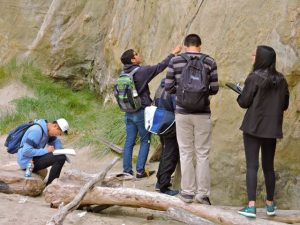
Textbook and Companion Website: Writing Science in the Twenty-First Century. Also inspired by this writing-in-STEM research and based on my teaching of “Writing in Science” courses to upper-division STEM majors at UC Davis each year from 2009 to 2016, I wrote a textbook on STEM communication, titled Writing Science in the 21st Century (Broadview Press, 2019). A second, updated edition of this textbook is currently in preparation, for publication in 2026.
*****************************
Engaged Writers and Dynamic Disciplines: Research on the Academic Writing Life
From 2000 to 2005, colleague Terry Myers Zawacki and I studied ways by which learners/writers become proficient in the discourses of disciplines. Over the years of the study, we learned much about how students perceive “academic writing” and understand the expectations of their teachers in different courses. Further, we came to a clearer understanding of how they negotiate the demands of academic readers and their own desires as writers. Indeed, we came to devise a developmental model, as outlined in our book on the research, of writers’ growing understanding of the complex nature of their disciplines and of their own relationship to them.
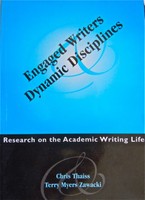
This research involved
-
- interviews with publishing and teaching faculty in fourteen fields
-
- analysis of teachers’ course materials
-
- a survey of students in a range of degree programs (respondents identified 40 disciplines)
-
- student focus groups
-
- analysis of reflective essays written by students as part of a portfolio procedure to obtain proficiency credit for Advanced Composition
-
- use of data compiled as part of George Mason University’s discipline-based assessment of student writing proficiency
This research was supported in part by a grant from the Council of Writing Program Administrators and by internal assistance grants from George Mason University.
The first phase of this research (with one group of faculty informants) was published in 2002 as a chapter, “Questioning Alternative Discourse: Reports from across the Disciplines,” in ALT.DIS: Alternative Discourses in the Academy, eds. Schroeder, Fox, and Bizzell (Heinemann). The entire project was published in 2006 by Heinemann as Engaged Writers and Dynamic Disciplines: Research on the Academic Writing Life.
Core Research Questions to Faculty
Cluster One:
How do informants define “standards” for writing in their disciplines? What do they see as alternatives, acceptable and unacceptable, to that standard discourse? How do they see their disciplines changing to accommodate alternative approaches and discourses?
Cluster Two:
Have informants sometimes written in alternative forms? If not, why not? If so, why and how did they come to choose the particular alternative form(s)?
Cluster Three:
a. What are their writing/learning goals for students and how closely do these goals match the “standard” disciplinary discourse?
b. Do informants ever give assignments asking for alternative ways of thinking and writing?
c. How open are they to students writing in alternative ways to assignments they give? How do they treat such writing?
d. In particular, how do they treat student writing that shows “alternative” syntax and organization (e.g, “errors” in Standard Edited American English)?
